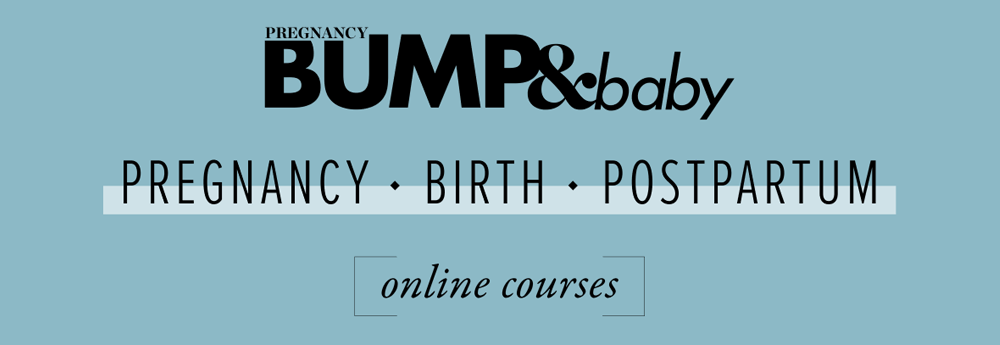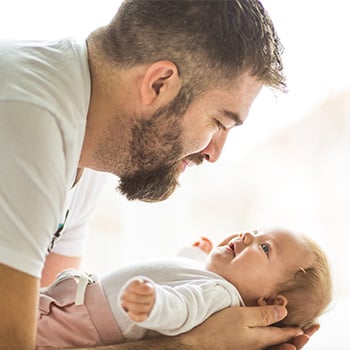
Is your due date looming? Here are 10 things you absolutely must have done before the big day.
Sort out your baby’s bed
If you don’t have your nursery completely set up, it’s okay – chances are your baby will be sleeping in your room for a little while anyway, particularly during those first months when they need feeding at all hours of the night. But your baby does need a safe bed to sleep in. A pēpi-pod sleep space is a safe way for your baby to share your bed – check out changeforourchildren.nz/pepi_pod_programme to find out more. If your baby is sleeping in a cot or bassinet in your room, ensure it is properly assembled and made up with appropriate bedding – no pillows, bumpers, loose blankets, or duvets.
Sort out your birth plan
While some mums-to-be like to have a long, thoughtful document spelling out all kinds of minute details and contingencies and wishes, the reality is, your birth plan doesn’t need to be a novel. Have a chat with your LMC about what you would like to happen at your birth – would you like pain relief or not? What labour positions would you like to be able to try? Do you want a water birth? How do you want complications handled? Who gets to “catch” the baby – do you want to do this, or your partner? Who cuts the cord? These things and more need to be thought about prior to labour, when you may be too involved in actually birthing your baby to make big decisions.
Go to antenatal class
Whether you’re a first-time parent or you’ve done this before, it is a good idea to learn about what to expect from childbirth and the first few weeks with your baby. Antenatal classes are offered by many birthing centres, hospitals, and local parents’ organisations – ask your midwife to recommend one near you. When you go along, ask lots of questions, particularly about the post-birth period as many women feel that is the time they wish they’d had more info about.
Make a plan about visitors
Who gets to be in the birthing centre or hospital when you’re labouring? Do you want your parents and inlaws to be waiting outside the door, or would you prefer to call them a few hours after the main event? Are friends and extended family welcome at the birthing centre, or do you want to wait until you get home? Many women can feel tired and overwhelmed in the first few days after birth, and having visitors can be even more tiring. Make a plan about when you’ll accept visitors, communicate it firmly, and stick to it.
Prewash baby’s clothes and bedding
Get your baby’s wardrobe ready for wear by prewashing clothing, bedding, and other items which will come into contact with their sensitive skin. Use a gentle, baby-friendly washing detergent which is free from dyes and perfumes.
Know breastfeeding basics
It’s important that you know a bit about what to expect if you’re breastfeeding. If you’ve attended an antenatal class, you’ll have had some instruction about the mechanics of breastfeeding – but if you haven’t, or if you can’t remember the main points, have a chat to your midwife about refreshing yourself on the breastfeeding basics. You can find lots of helpful info online, including tutorial videos and step-by-step guides. Forewarned is forearmed, and the more prepared you are, the less stressed you’ll feel about it.
Get your hospital bag packed
It’s a good idea to have your hospital bag packed well in advance of your due date – like, a month in advance. And store it in the car or by the front door, so you can uplift it quickly. The last thing you want to be doing while you’re having contractions is looking for those comfortable post-delivery underwear you bought specially and then stored somewhere “safe”…
Get some meals ready
Having some meals frozen and waiting to be defrosted and popped into the oven or microwave can save you from the trap of takeaways during those first few weeks with a newborn at home. Prepare some meals ahead of time, clearly label them with cooking instructions, and store them in the freezer. And if anyone who is visiting asks if they can bring anything, say, “we’d love a meal, thanks!”
Install your capsule or car seat
Make sure your baby’s capsule or car seat is installed safely and correctly, and that you are familiar with how to do this – you don’t want to be standing in the carpark of the birthing centre in the rain with a newborn, swearing while you try to wrestle an uncooperative car seat into your car. If you’re renting a capsule or car seat, pick it up at least two weeks before your due date, and get the staff to install it for you and show you what to do, so you can practise at home.
Choose some name options
While you don’t have to register your baby’s birth for two months after they’re born (although believe us, you’ll get a reminder letter from the Department of Internal Affairs quick-smart if you don’t get it sorted soon), you’ll save yourself a lot of hassle if you have some name ideas prepared before you go in to give birth. Because everyone will ask you what the baby’s name is – and even if none of the names you chose suit your newborn, it’s far better to be able to say “We’ve got some options we’re deciding on” than “We don’t know.” (Admit you don’t know and you open yourself to all kinds of unwanted suggestions!)
BUMP&baby
BUMP & baby is New Zealand’s only magazine for pregnancy and early babyhood. Our team of mums and mums-to-be understand what it’s like to be pregnant in this connected age, and that’s why BUMP & Baby online is geared toward what pregnant women and new mums really want to know.
Other articles of interest
How to improve your digestion, bowel health and regularity
The tips for success listed below make a massive difference to the state of your bowels. Your bowel health then influences your metabolism, your energy levels, your skin, your digestion, your weight, your ageing and your potential longevity.
The importance of joint attention
Joint attention is important in terms of communication skills and is a main focus of development for infants between 8 and 12 months of age.







